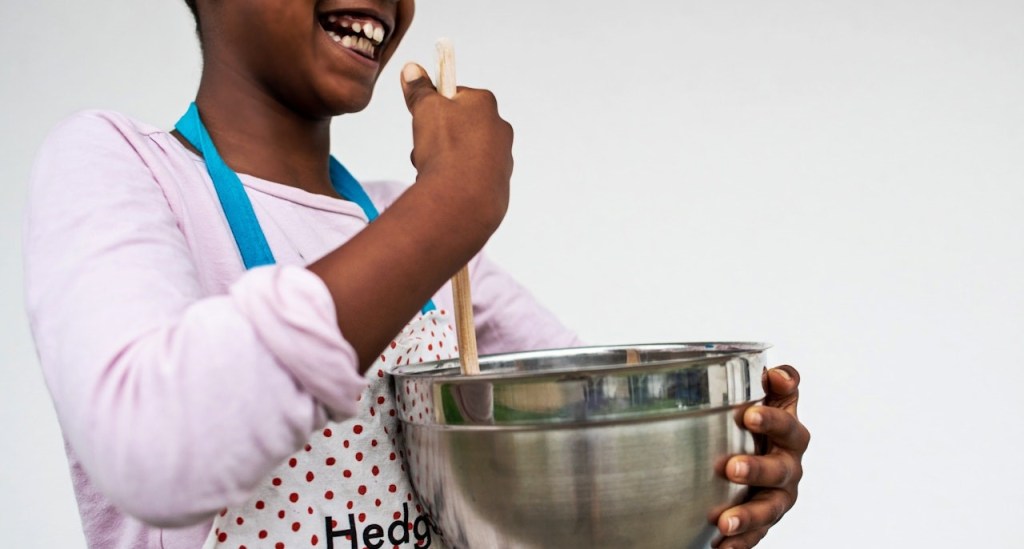
By Aria Brent
AFRO Staff Writer
abrent@afro.com
There are many types of therapy to help people overcome or recover from the hardships of life. And although some therapies are practiced by licensed specialists, others are created by people who see a need for non-traditional treatment to be administered.
Some may turn to retail therapy, but that can be taxing on the pockets after a while. Others may search for happiness via travel, but for some, food is the way to heal the soul.
“I remember chopping vegetables for a salad and doing things in the kitchen and at the time, I recognized that that process helped me unwind and calm down and kind of recenter myself at the end of the day,” said Julie Ohana, a culinary arts therapist. “I always knew that there was something to it. Flash forward a number of years later, when I was in graduate school, we had to write a master’s thesis on anything we wanted. I knew immediately that I was going to be writing on how cooking can be therapeutic, and that’s what I did.”
Ohana is the founder of Culinary Art Therapy, a small Michigan based business that’s having a huge impact on participants. With a passion for cooking and over 20 years of experience as a school counselor, Ohana proudly offers her services as a culinary arts therapist.
She explained to the AFRO that culinary art therapy is the act of cooking or creating something for the sake of doing something that feels good for you. She got her start in her family’s kitchen and has never looked back. Much like her passion for cooking, her desire to help people has always been within her and marrying the two came very naturally.

“Wanting to help people has always been in me. I think I always knew I was going to be a therapist, and I always knew I wanted to be somebody that helped other people,” she said. “Food is something that brings people together and it’s something that people can relate to and because of that, I just knew that it would be something that other people would be receptive to and could benefit from.”
She noted that there aren’t currently any culinary art therapy programs or degrees in the U.S., however the practice is constantly growing and more people are participating in the creative style of therapy.
“There are culinary art therapy programs in other countries around the world, like Israel. I hope that one day in the U.S., it will be the same but for right now, it’s not the case. I did put together a training program to help other clinicians learn how to utilize these skills in their practice,” she said.
It was noted that culinary art therapy has been found to be beneficial to people of all backgrounds, ages and genders. Ohana explained that a singular session is all some patients need to put them in a better space, however much like traditional therapy its most useful when it’s practiced regularly.
“It works across the board. It’s great family therapy. There’s nothing more amazing than seeing family dynamics play out as a family’s cooking together,”Ohana said. “I’ve been known to bring vegetables into my office and we chop them together to be able to learn how to practice mindfulness, how to self soothe and ease some anxiety symptoms.”
“It’s also really powerful for older adults, who can reap the benefit of tapping into that ability of reminiscing and memory, because our sense of smell is the strongest sense tied to memory,” she said “When you’re cooking or you’re even talking about certain dishes, it evokes memories, and there can be something really cathartic about being able to look back and talk about those memories with someone.”
And although culinary art therapy is great when practiced by a professional, it can also be done at home by regular people who have a passion for food and cooking.
“Pick a recipe that is simple–something that appeals to you. This is not about creating Michelin star restaurant quality dishes, this is about engaging in the process,” said Ohana. “Open your refrigerator, pull out whatever veggies you have and start chopping and start being aware of what you’re doing. Think about how you’re feeling and pay attention to what you need to improve on. Ask yourself, ‘Where do you need help?’ and ‘How do you tune into those things?’ and let that process guide you.
The post Cooking for the soul: Exploring the benefits of culinary art therapy appeared first on AFRO American Newspapers.










